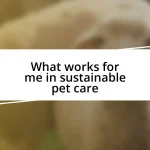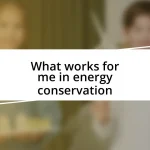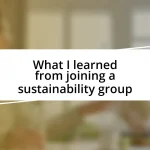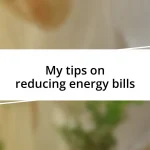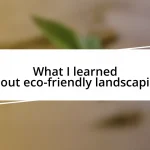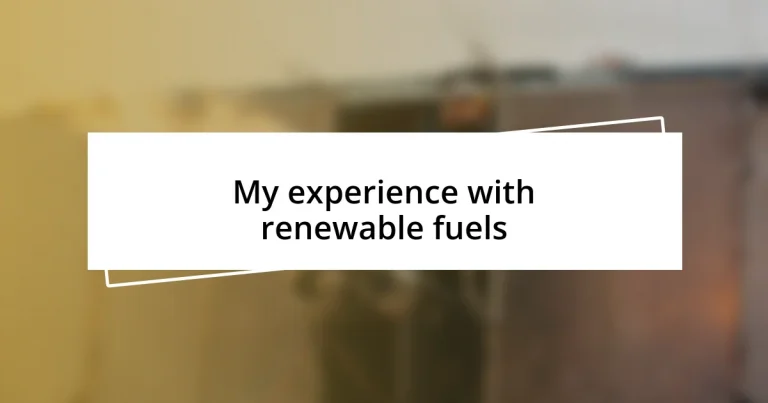Key takeaways:
- The author discovered the transformative potential of renewable fuels at a local energy fair, sparking a passion for sustainable energy practices.
- Hands-on experiences and community projects, such as building a solar farm, highlighted the positive impact of renewable fuels on local economies and the environment.
- Switching to renewable fuels not only reduces emissions but also promotes energy independence and innovation within communities.
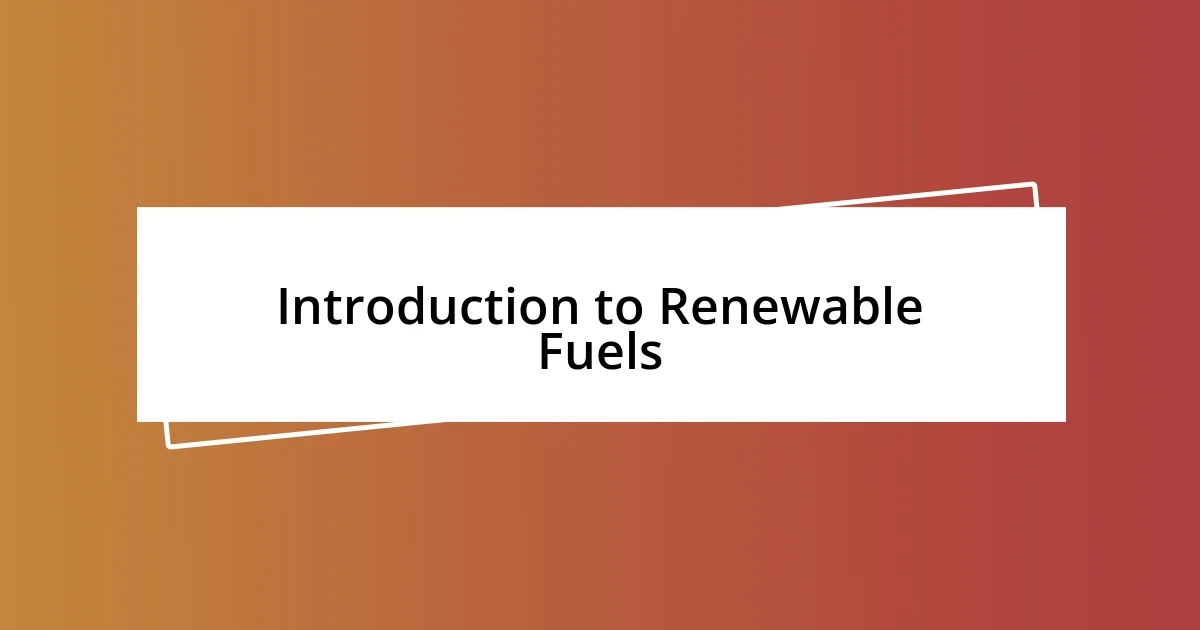
Introduction to Renewable Fuels
I’ve always been fascinated by the concept of renewable fuels and how they connect to our daily lives. Unlike fossil fuels, which take millions of years to form, renewable fuels come from sources that are constantly replenished, like wind, sunlight, and plant materials. I remember the first time I learned about biofuels and how everyday crops like corn can be converted into energy – it felt like a window opened to a world of possibilities.
Transitioning to renewable fuels is not just a trend; it’s a necessity for our planet’s future. When I think about the impact my choices can have, I’m motivated to learn how fuels derived from organic waste or solar energy can reduce our carbon footprint. Isn’t it incredible to consider that something as simple as leftover vegetable scraps can be transformed into fuel?
As I delved deeper into the subject, I realized that renewable fuels can empower communities and create jobs. Imagine the satisfaction of seeing local farmers contribute to the energy grid while simultaneously promoting sustainable practices! This multifaceted approach not only aids environmental conservation but also strengthens local economies.
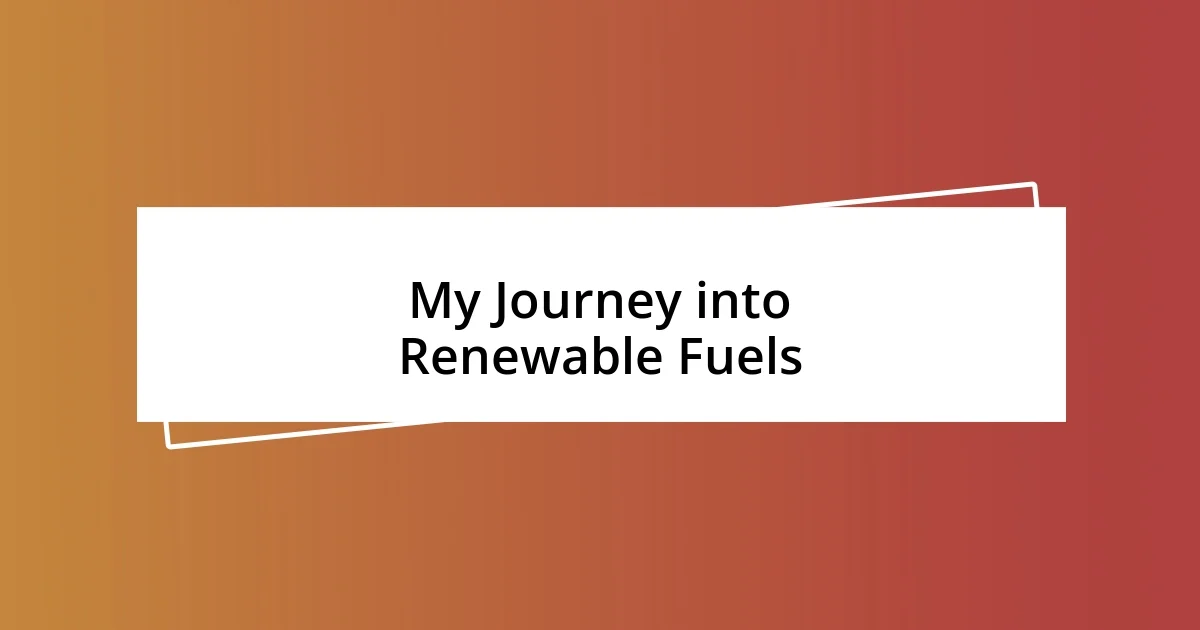
My Journey into Renewable Fuels
My journey into renewable fuels truly took off a few years ago when I attended a local energy fair. One booth caught my eye—it was all about converting household waste into biofuel. It was such a lightbulb moment for me! I never realized that my kitchen scraps could be part of an energy solution. It sparked a passion within me to explore not only the science behind it but also the community implications, especially when I learned how farmers in the area were already applying these concepts.
Here are a few highlights from my adventure in renewable fuels:
- Hands-on Learning: I participated in workshops where I created my own mini biogas generator with my family. It was messy and chaotic, but every laugh made it worth it.
- Community Impact: Witnessing the pride in local farmers who worked together to build a solar farm for the community was incredibly inspiring. It felt like they were lighting the way toward a sustainable future.
- Continuing Education: I started reading books and listening to podcasts about renewable energy. My favorite was a series that explained how algae can be converted into biofuels—it was like a whole new world opened up.
- Personal Commitment: I shifted my lifestyle to reduce waste at home, fascinated by how my small actions could contribute to a larger goal of renewable energy!
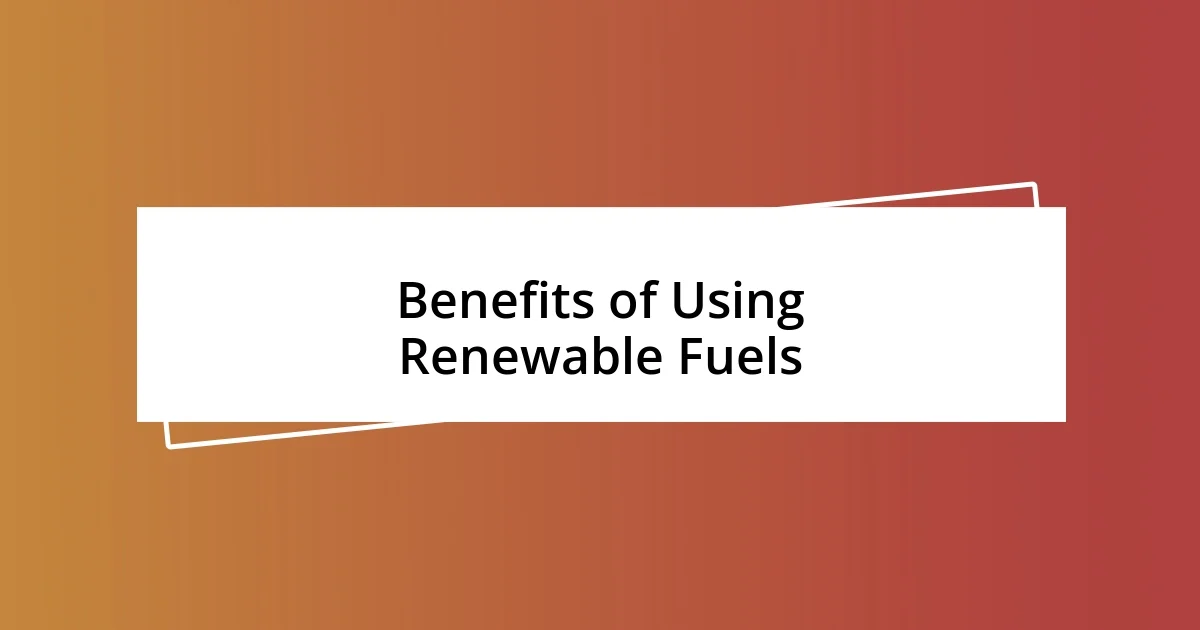
Benefits of Using Renewable Fuels
Switching to renewable fuels has been a game-changer for me, both environmentally and personally. For instance, when I learned about how much reduced emissions we can achieve compared to traditional fossil fuels, I felt a sense of empowerment. It wasn’t just statistics—it was about how my energy choices directly impact our planet, and that realization truly sparked a deeper commitment within me.
One of the most rewarding aspects I’ve experienced is how renewable fuels can lead to energy independence. I remember chatting with a neighbor who installed solar panels on their roof. They talked about the satisfaction of generating their own electricity and not being at the mercy of fluctuating fossil fuel prices. It’s moments like these that make you wonder: why wouldn’t we all consider such options?
Another benefit I’ve noticed firsthand is the innovation that comes with renewable energy technology. I was at a community workshop, where a local engineer introduced us to the latest in wind energy advancements. The enthusiasm in the room was palpable. Witnessing people come together, sharing ideas, and brainstorming solutions made it clear that renewable fuels do more than just provide energy—they foster a vibrant, sustainable community that I feel fortunate to be a part of.


